I have a confession to make. At 53 years of age, I had never lived outside Australia. I’d raised my daughter as a single parent and, well, had neither the time, money or inclination to move overseas. Hell, I didn’t even start travelling internationally until I was 47. The first country I visited? Vietnam.
When I was in my twenties, I almost went to London, but for any number of reasons — youth? stupidity? finances? the eighties? — I didn’t go, choosing to struggle my mediocre way through an arts degree, guzzling large amounts of happy hour alcohol, bedding misunderstood man-boys with hair longer than mine and belting out rock ballads in seedy karaoke bars instead.
Then I had a baby, and taking care of her became my focus for the next 16 years, until she left high school and launched herself into the workforce. Then it was my time. I could do all the things I had intentionally parked until she was self-sufficient. Travel was one of them. Living overseas, another.
Table of Contents
The three stages of being an expat in Vietnam
I arrived in Hanoi, Vietnam’s capital, in November 2016, planning to stay for three months to honour the commitment I made to a volunteer role I signed up for. More than three years later, I’m still here. That volunteer role is a blur in my rear-view mirror — so much has happened since — but it was a helpful, safe introduction to a country radically different from Australia. Without the support of that volunteering role, I would have floundered. The language, the culture, the people, all took some getting used to — and even now, I’m not convinced I’ll ever get used to it.
When I was on-boarded for the role, I was warned about the stages of “culture shock” that I may encounter in the first three months. These stages included excitement, overwhelm, lethargy and adjustment. I’m still experiencing it, although now it’s more of an internal, existential battle than an external, situational one. The external battles include dealing with the bureaucratic systems of a communist country, which — to be fair — even the Vietnamese find frustrating. The war raging internally is around questions around whether I should have come to Vietnam in the first place, and if should I stay. These are the stages I have passed through that have contributed to my current way of thinking. They may not be the experience for all expats, but these are my truths.
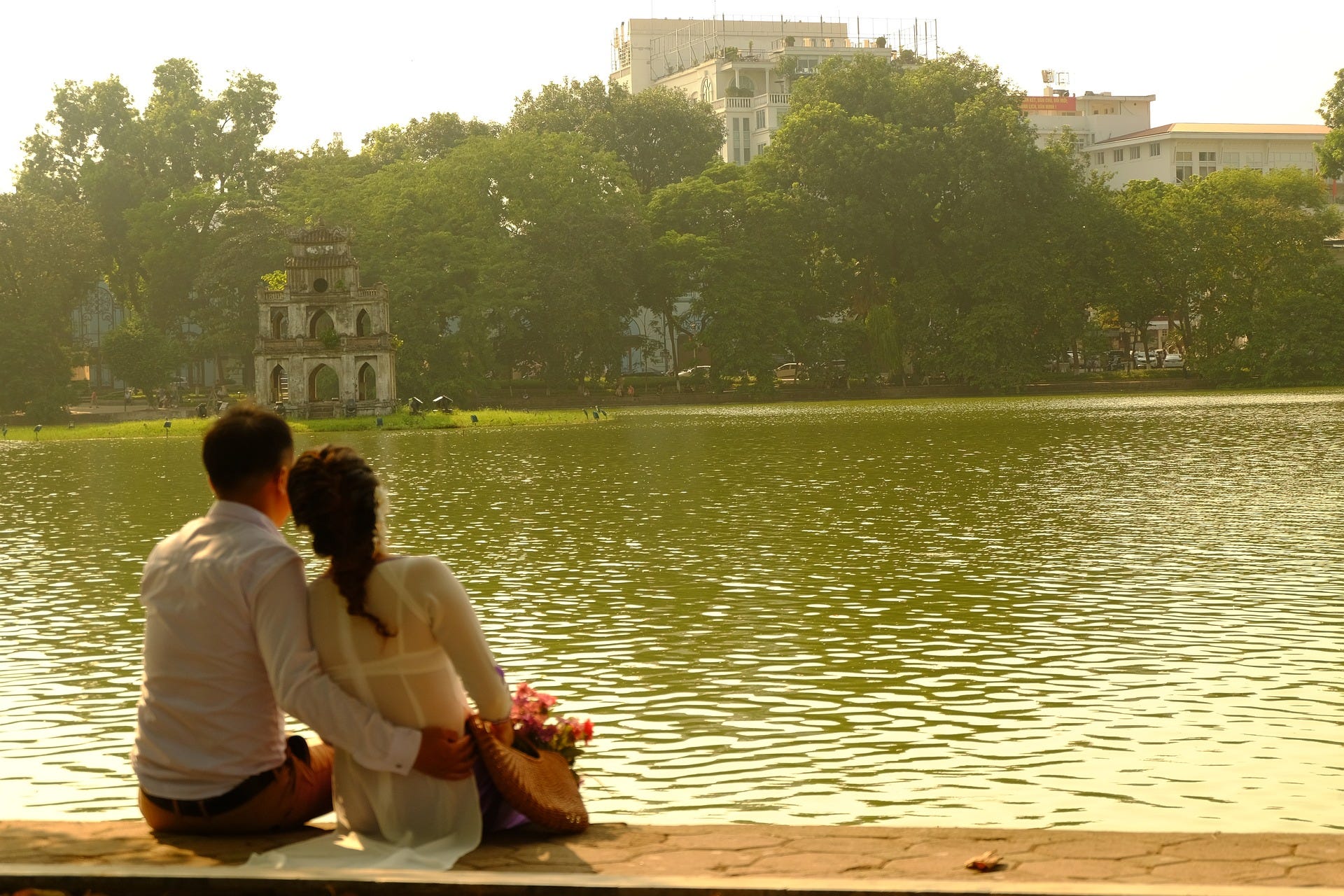
Stage 1: I love to love you, baby
I arrived in Vietnam, late on a Saturday afternoon from Penang, Malaysia where I had stopped for a week on the way through from Australia. The hotel had organised a driver for me, and I held my breath until I saw a slight man in the arrivals hall holding a sign with my name. I exhaled, relieved while he helped me with my luggage and walked me to the van.
We drove the 30 odd kilometres from the airport, across the Red River and the laser lit Nhat Tan Bridge to the Old Quarter and I absorbed the sights along the way: groups of men sitting on tiny plastic stools drinking beer; solitary women carrying heavy bamboo baskets of fruit on their shoulders along the roadside; one, three, five people plus dogs riding on motorcycles. Thousands of motorcycles. It was noisy. And hot. The air was sticky with humidity, and smelled of char-grilled pork and exhaust fumes.
I hated my hotel, which was smack dab in the busiest, noisiest part of Hanoi’s Old Quarter. I had planned to stay there for two weeks while I found an apartment. The room reeked of stale smoke, the toilet leaked water all over the bathroom floor, and there weren’t enough plugs to charge my appliances. I kept stubbing my toes on misplaced furniture. The staff hardly spoke English, which was a problem because I spoke no Vietnamese.
I moved out after five days to a bright, airy studio apartment in the expat district of Hanoi. I started my volunteer job and made instant friends with the staff. I began learning Vietnamese. I made more friends, both local and foreign. I learned about Grab motorcycle taxis for getting around Hanoi, and Vietnammm for ordering in food when I couldn’t be bothered cooking (often) or going out to eat (rarely). I did my first visa run to Bangkok, and relished the luxurious, delicious freedom of not having a “proper” job.
I said yes to every single opportunity and experience that presented itself. I found work easily as a freelance writer and editor. I had all expenses paid work trips to Mu Cang Chai and Halong Bay and Danang and Saigon and Myanmar. I met a man, who became my boyfriend, crossing a road in Ho Chi Minh City. I brought my cat from Australia to Hanoi and rented out my apartment in Adelaide. I was here to stay.
Everything was new, exciting, different, easy. I felt special. And invincible. And valued. Valuable. I pinched myself regularly, usually when I was careening around the streets and alleys of Hanoi on the back of my motorcycle taxi, in utter disbelief that I was living in Vietnam, bi-arches.
I fell head over heels in love with Hanoi and said to anyone who would listen that I would die here, and have my ashes sprinkled over West Lake to the haunting, traditional tunes of the đàn tranh. Or Israel Kamakawiwoʻole’s Wonderful World.
This stage lasted approximately one year.
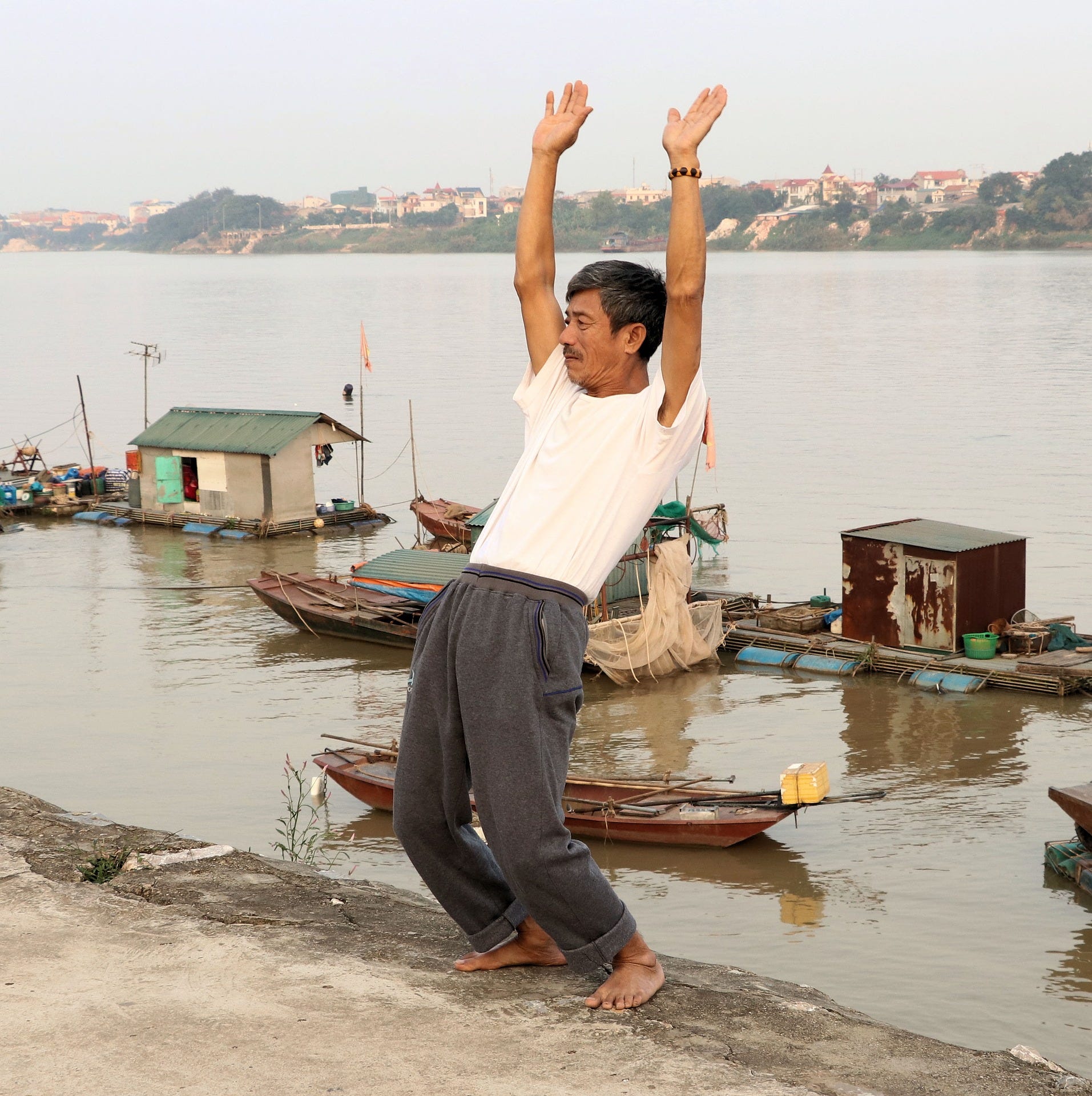
Stage 2: We’re not in Kansas anymore
Have you ever been blacklisted by a government for Immigration infractions? Almost killed on a mountain near the Chinese border? Dated a local who was a covert narcissist and subjected you to months of emotional abuse before you figured out what was going on? Spent 10 days in hospital with a liver that was going into meltdown and no one knew why?
No? You haven’t?
Neither had I, until I lived in Vietnam.
Suffice it to say, these episodes opened my eyes to the vagaries of living in a developing, communist country where English is still not widely spoken. The rose-coloured glassed slowly lost their tint, and I see everything clearly, in pure unadulterated, living technicolour. I see an underbelly that will sell out its grandmother for a few bucks. I see the warm smiles of generosity on the fine-featured faces of my Vietnamese neighbours who share their freshly cut pineapple with me and love to gossip. I see traffic chaos and a remarkable absence of road rage. I see footpaths that are parking for motorcycles and walk on the pot-holed, unmaintained road, dodging traffic that obeys no rules. I see unspeakable cruelty. I see heart-warming kindness.
I breathe the murky air, polluted by carcinogenic particulates from the fumes of motor vehicles and factories and routine burning of plastic and other trash. I know that a trip to the bank will take me the better part of the morning or afternoon to complete because I have to obey rules for foreigners that aren’t easily accessible. I know that buying things, ordinary things like Vanish and potato mashers and Phenergan and sports bras in my size, is mission impossible, so I don’t, or I have workarounds. I know that the wheels of bureaucracy are square, and turn infrequently and at a snail’s pace unless a piece of paper has been signed and stamped and handled by at least 10 people in an unquestioned hierarchy. Of course, that’s if you don’t pay officials: processes are much smoother and quicker if you do. I don’t because it’s a slippery slope that gets more slippery over time.
In keeping with Mark Manson’s theory of giving a f*ck by not giving a f*ck, I solved my immigration problem by creating a legal problem — I opened a company, which authorises me to work in Vietnam. Now, I deal with taxation — and all that that involves — instead of immigration. And I had to hire an accountant because it’s impossible for anyone, foreign or local, to run a company in Vietnam without one. And most of may earnings goes on paying lawyers to deal with administrative things that I can’t deal with on my own. I solved my dating problem by ditching my covert narcissist boyfriend, and consequently went to a very dark place that had me re-evaluating all my relationships, my reason for being and introducing meditation into my life. I solved my liver problem by being on medication for six months, cutting out all alcohol, ensuring exercise was integral to my daily routine as was watching my diet, although I’m 99.9% convinced it was all stress related (thanks to immigration, starting a company and my covert narcissist ex-boyfriend).
I can’t solve Vietnam’s pollution problem so I volunteer for a social enterprise that tries to help, and I wear a mask when I’m on a motorcycle. I can’t solve the bureaucracy so I accept that, for example, a trip to the bank will take several hours out of my day and will frustratingly require a mountain of documentation and I prepare for that (but it gives me major anxiety). I can’t solve the problem of corruption in this country, so I try to deal with people who are basically honest, which is sometimes difficult to ascertain (and the foundation of my problem with immigration, which is a long, sad story of my naivete). I can’t ensure that every single person in Vietnam speaks English, but I can learn Vietnamese to make communication easier (and I’m functionally conversational).
The reality is there are many frustrations, as well as joys, living in a country like Vietnam. Language barriers and bureaucracy and corruption aside, it seems easy because of the expat lifestyle — I love having a cleaner and things are so cheap and other parts of Asia are so easily available and I’m learning guitar and Vietnamese and I have so much time — but it’s a superficial ease. Once you dig in deep and have lived here for some time, you realise it’s much harder than it looks — and this stage has crept up on me over a period of about six months to one year.
Now, if anyone asks me, I say don’t know long I’ll be here.
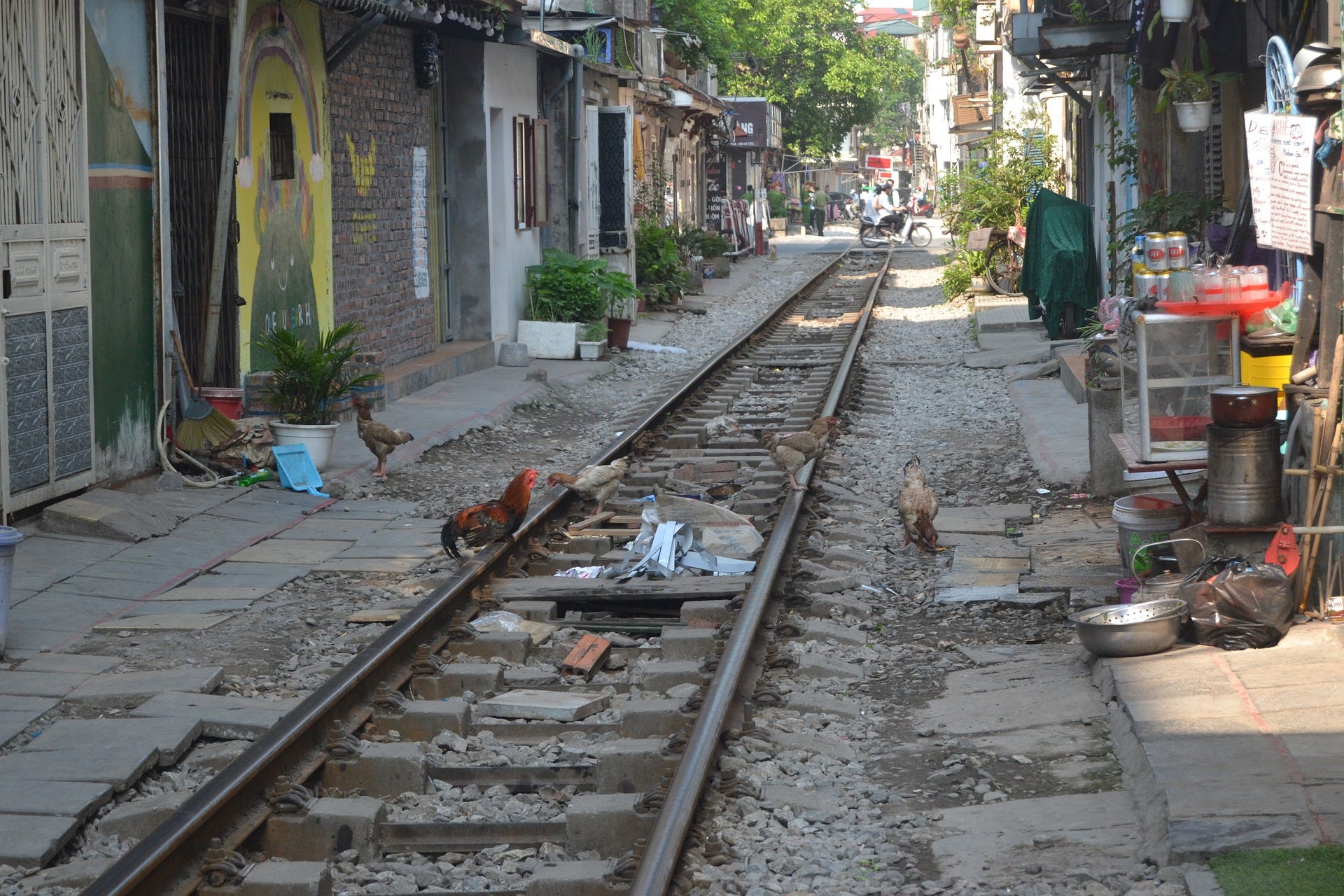
Stage 3: Do I stay or do I go?
Even after my immigration debacle, I was still firmly entrenched in Stage 1, and I started my company to ensure I could stay legally in Vietnam. I made this decision based on the information I had at the time, namely, my then boyfriend wasn’t a Cluster B personality, work would be plentiful, well paid and easy to find, my Vietnamese business partner would be helpful, friends were easily made and kept, and I was in good health.
It turns out my decision to stay may or may not have been the right one. The jury is still out on that one.
Good or bad, hard to say.
My immigration issue is largely fixed thanks to my company, although one year of uncertainty has me on edge, waiting for the other shoe to drop. Or for immigration officials to visit and deport me. Anxiety is my constant companion. I have an exit strategy or three up my sleeve, which includes getting my beloved cat out of Vietnam safely and repatriating her in Australia if I have to. I have researched and compiled a list of countries that have (relatively) easy visa situations, low cost of living and align with Australian Quarantine requirements. Just in case. I’ve also applied for my UK passport, and hope and pray Brexit doesn’t happen so I have more options for longer stays in Europe.
Running a company in Vietnam has been more difficult than I ever thought possible, particularly because I’m doing it single-handedly — my Vietnamese business partner is spectacularly uninvolved. This creates more stress, because while he is honest, I’m always chasing him to sign documents and reschedule meetings he’s cancelled at the last minute. I’ve addressed this by exiting him from the company, which will create a whole other set of problems that, at this point in time, I have no knowledge about. Because I’ve been more or less (actually, more) running things on my own and sorting out lots and lots of shit around taxation and business lines and registered addresses and bank accounts and labour contracts and payroll (mine), I’ve had no time to do marketing. At the time of writing, I have one loyal client who keeps throwing me bones.
And clients are difficult to get or keep in Vietnam. The whole country is a giant wet market that bargains down prices on skills, even valuable native English-speaking services like mine. There are endless meetings that rarely amount to anything. Proposals that go nowhere. Signing agreements can take anywhere up to two to five months. And even then, when you would think it would all be settled and good to go, the goal posts still continue to move because nothing is set in stone. Even a lawyered, signed service agreement. It’s a complex, complicated environment, made more complex and complicated because of language and culture.
I’ve asked myself a gazillion times across 2019: do I cut my losses and wind the company up and take my chances in another country? Or do I suck it up, and think about all the good and wonderful things about living in Vietnam and. Just. Push. Through.?
This stage has occupied my thoughts for the better part of last year. Some days and weeks, I want to pack up everything and depart for new and exciting and less stressful (in my mind) foreign shores. Some days and weeks I love my life here, the people in it and what I do. Most of the time, I’m not sure it’s enough.
Funnily enough, even though I have family (my daughter and sister) in Australia, I’m not pulled to return. A higher cost of living, over-regulation and fewer job opportunities have not persuaded me that moving back is an option. Not yet, anyway.
Where to from here?
Who knows? Maybe Stage 4 is pack it in and pack it all up.
And despite what I said in the last paragraph, there’s no place live home…
Feature image by MICHOFF from Pixabay
Save for later – pin to Pinterest
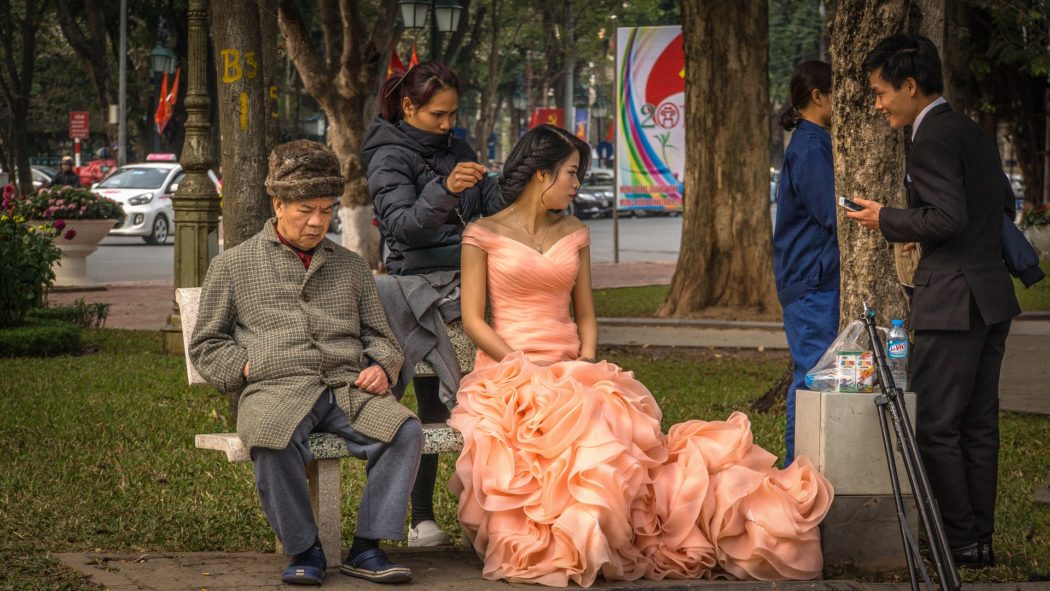
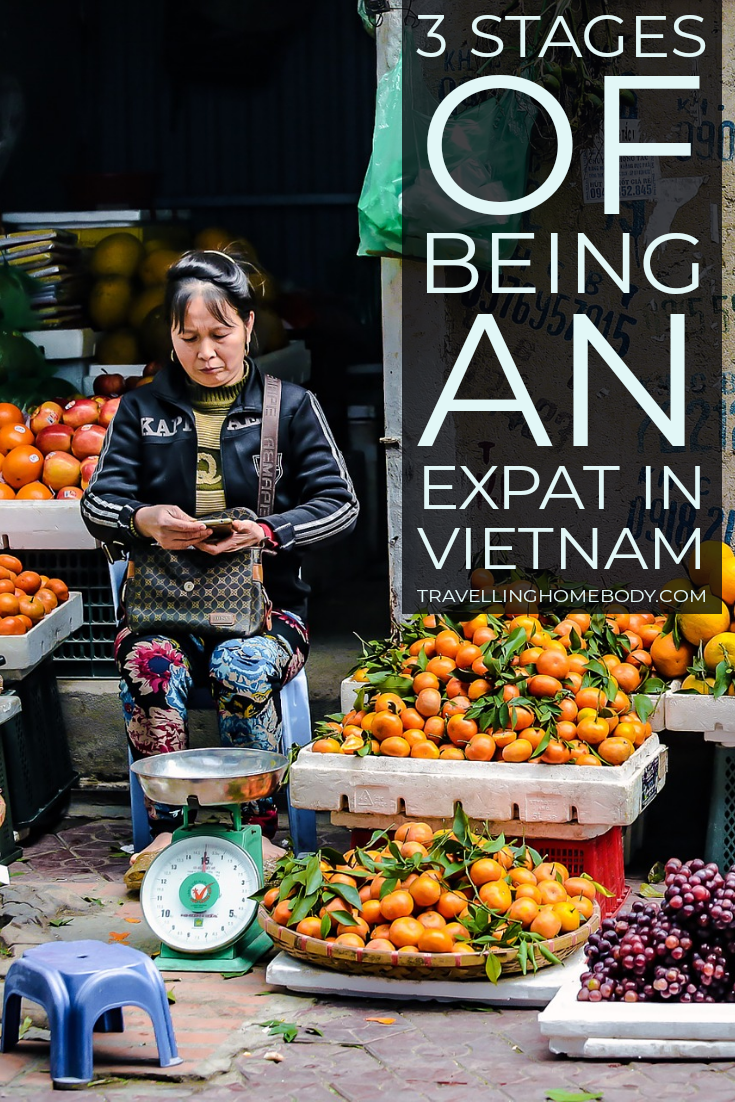


No Comments